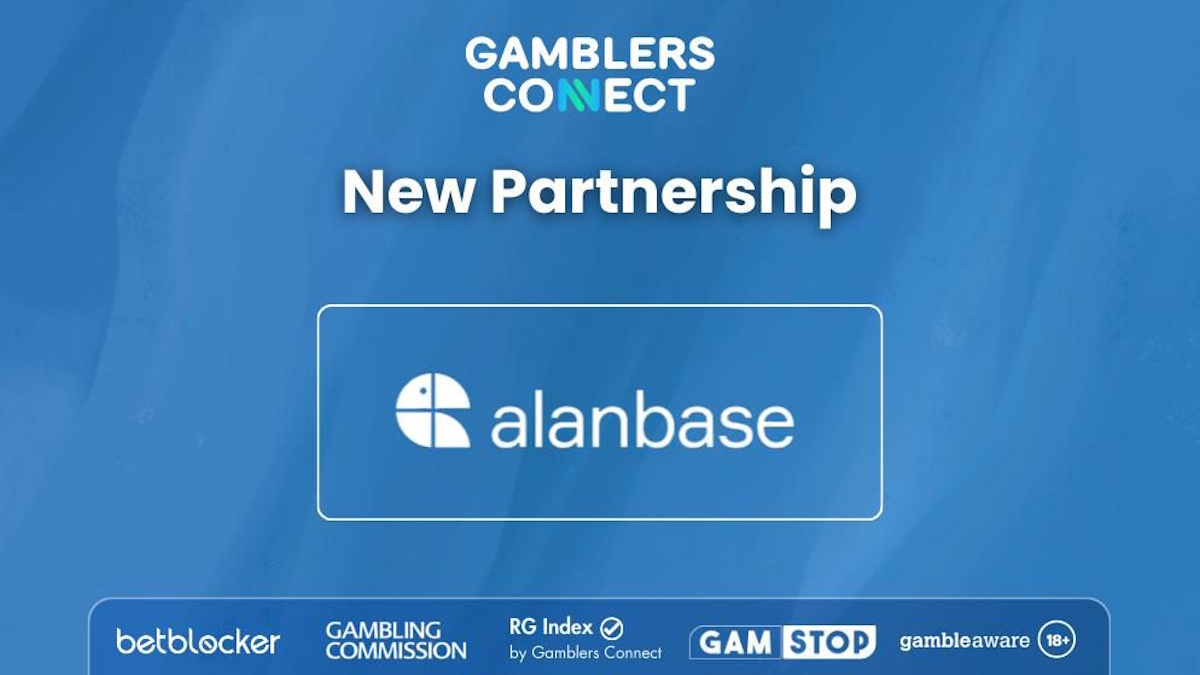Latest News
‘Making a positive difference’: YGAM undergraduate apprentice, Nadia Tarik, reflects on a year studying and working for social change

In 2019 23-year old Nadia Tarik made history when she was among the first students to participate in the ground-breaking apprenticeship degree course in Social Change at Queen Mary University of London. Thanks to pioneering sponsorship from Caesars Entertainment EMEA, Nadia has been able to combine a four year degree course with her work as a Development Officer at YGAM, the UK charity that works to inform, educate and safeguard young people against gambling and gaming related harms. Nadia reflects on her first year of studying and working.
The Social Change degree course attracted six times more applicants per place than Oxford University – can you explain the challenges of being accepted onto the course and what was the interview process like?
Being the first degree of its kind meant that there was very high demand for places. The recruitment process was extremely challenging and detailed to ensure that recruiters were selecting candidates that would make the most of the opportunity as well as identify those with the capabilities to impact social change. The academic requirements were very high with three As at A level in order to ensure that applicants would be academically capable of completing the course and understanding the set modules. I had to present a detailed explanation as to why I should be accepted, what I would bring to the programme and my future goals. We then had a group based interview, followed by a 2:1 interview in which I was asked multiple questions regarding my application and a full explanation of my career and work history. After several phone interviews with recruiters, I met YGAM CEO Lee Willows and Mike Wojcik the Chair of Trustees and then completed a final round interview with the CEO after which I was offered the position.
Can you describe what your post at YGAM entails and what the challenges are?
The Development Officer Apprentice role involves frequent rotations across disciplines including marketing, education and fundraising. The diversity of the apprenticeship programme has, I think, put me in an extremely favourable position with regards to the development of my career that I would not have been exposed to if I had chosen a more traditional route. The accessibility of technology resources has enabled organisations of all sizes to become digitally focused. Regarding the current pandemic crisis, many firms have had to redesign their business plan and create a virtual presence. The introduction of YGAM’s Webinars has allowed me to develop an understanding of numerous programmes such as Salesforce and WordPress. I am now able to utilise my knowledge and incorporate the software on a day to day basis, building my IT literacy and enabling me to contribute to projects such as the design of YGAM’s virtual resources and registrations. This year we’ve introduced Parental Engagement educational resources, allowing me to be part of the development of a new service right from the very start. I have particularly enjoyed working with the team to design surveys for our focus groups and I have now been given the task to create interactive animations for our new educational materials.
In many ways YGAM has been ahead of the curve, as even prior to the pandemic it has operated a remote working environment with employees spread all across the UK. Working remotely at such an early stage in my career has been a definite plus enabling me to experience the challenges of goal-setting, motivation and discipline that are so important whilst working independently.
A lot of people are put off further education due to the fear of accumulating student debt – does the apprenticeship help in that respect?
Yes, student debt is a big deterrent for many individuals especially those from challenging backgrounds. An apprenticeship programme is highly beneficial for those struggling with the decision to undertake a degree or to earn a full salary as it provides the benefits of both options. I am of course extremely grateful for the support provided by Caesars in this respect. The apprenticeship programme eliminates financial constraints by providing free intuition, the standard living wage salary or above as well as any resources required for the course. There is a big misperception that those operating in the third sector/not-for-profit do not become financially successful. The Social Change degree apprenticeship programme provides the training, resources, networks and knowledge to ensure you are on the right path to achieve personal and career goals.
Can you explain how the course operates and the split between working at YGAM and studying at Queen Mary University?
The Chartered Degree Apprenticeship in Business Management (Social Change) is a four-year programme. After completion, apprentices gain a Business Management (Social change) BSc Degree as well as a Chartered Management qualification. During university term time we operate with two full days of education and three full days of working with our employer. Outside university term time I work full time, five days a week at YGAM. Throughout the four-year programme the apprentices are required to create a portfolio which examines how we have met the KPIs for our Chartered Management qualification. Thus, challenging us to translate the skills and experiences from our workplace with the theory taught in our modules. In our final year we will undergo a six-month work project where we take on the role as project manager to showcase our skill sets and finally present it to a panel for grading.
What modules do you study at Queen Mary?
It is a really comprehensive course covering marketing, the law, accounting, leadership, ethics, governance, social responsibility, fundraising management, mentoring and coaching. The course is varied and provides opportunities to deep dive into specialist interests.
Is it difficult combining work and education?
It can be demanding, especially during exam periods. Communication is very important, I have found that being able to liaise with fellow apprentices on my course extremely beneficial. Moreover, having open communication with my line manager relieved any stress I may have had. Management is very understanding and flexible with our work demands during assessment periods.
Can you provide some background – did you go to school in London and do you live in London?
I was born and raised in the London Borough of Bromley whilst living in a traditional Moroccan household. Growing up I spent a lot of time abroad in Holland and Morocco visiting family for extended periods of time. In terms of education I always studied in my local area so I was excited to attend Queen Mary’s University which is situated in the heart of East London. I love the fact that I can now explore a new area of London and experience a whole fresh wave of cultures.
Reflecting on your first academic year as an undergraduate apprentice – what have been the high points?
There have been a lot of high points, not least featuring in an article which was published in The Guardian newspaper which I think demonstrates how ground-breaking and different this course is. The ability to get hands-on experience in a real and relevant work environment, being able to participate in important initiatives and to contribute to the objectives and goals of YGAM are all really significant take outs from my first year. Currently I am part of a team developing interactive animations for our Parental Engagement resources – this is a new and exciting opportunity that allows me to hone into my creativity. It’s been a hugely exciting year of growth and impact at YGAM and I’m proud to be part of it.
If you hadn’t succeeded in being accepted on the apprenticeship degree course what do you think you would be doing?
My lifelong ambition has been to dedicate my career to the third sector. Equally, I am fascinated by the world of business so I think I would have followed a traditional business-related degree, whilst continuing to volunteer until I was able to merge both passions. I feel fully motivated and grateful to YGAM, Queen Mary and Caesars knowing that I am working for an organisation that is making a positive difference and impacting social change – which is exactly what I want to achieve in my career.
Powered by WPeMatico
Latest News
Bagelmania Backroom Comedy night lineup announced for Thursday, Feb. 26

The iconic Jewish delicatessen Siegel’s Bagelmania has announced the comedic line up that will leave guests “laughing their bagels off” at the next Bagelmania Backroom Comedy night on Thursday, Feb. 26.
Hosted monthly by Las Vegas-based and nationally touring comedian couple Noah Gardenswartz and Ester Steinberg, the event Thursday night will welcome Chris Clarke as the headliner along with acclaimed comics Kristeen Von Hagen, Gabe Quire and Lauren Rochelle.
Clarke, known as a high-energy and imaginative comedian, now tours the country with veteran comedian Rob Schneider. He also has amassed more than 40 million views on his popular YouTube channel “Csnacks,” where he tastes food and snacks from the front seat of his car. His hilarious and unique way of describing different flavors led to national commercials for Checkers and Rally’s, a one-hour special on the Cooking Channel titled Baby Got Snack, and an appearance as a food critic judge on Beat Bobby Flay.
Siegel’s Bagelmania will offer a special Backroom Comedy menu of its signature delicatessen cuisine as well as a full bar so guests can enjoy great comedy, dinner, and drinks in a unique, relaxed setting.
The Bagelmania Backroom is open to attendees 18 and older. Doors open for drinks and dinner at 7 p.m. Show time is 8 p.m. Tickets for Bagelmania Backroom are on sale for $20 online at https://siegelsbagelmania.com/backroomcomedy/ and will be sold at the door while supply lasts.
The post Bagelmania Backroom Comedy night lineup announced for Thursday, Feb. 26 appeared first on Americas iGaming & Sports Betting News.
Latest News
ACR Poker OSS XL Returns With $50M GTD

ACR Poker has officially announced the return of its flagship Online Super Series (OSS) XL, running from March 1 to March 23, 2026, with a massive $50 million in guaranteed prize pools.
Following the success of its recent Dual Venom tournaments, which paid out more than $11 million, ACR Poker is once again delivering high-value online tournament action designed for players of all skill levels and bankroll sizes.
Three Main Events With $5 Million Guaranteed
The headline events of OSS XL include three major Main Events launching March 15:
- $2,650 buy-in – $2 million guaranteed
- $1,050 buy-in – $2 million guaranteed
- $215 buy-in – $1 million guaranteed
These marquee tournaments anchor the series, offering players high-stakes competition alongside accessible mid- and low-stakes opportunities.
Phil’s Thrill XXL and Multi-Flight Action
Kicking off the series on March 1 is Phil’s Thrill XXL, featuring a $1.5 million guarantee and a $10,300 buy-in. Players can qualify for as little as $95 through ACR’s Road to the Big One promotion.
The schedule also includes a $630 buy-in Multi-Flight Event with $1.5 million guaranteed, with Day 1 flights beginning March 1 and Day 2 set for March 23.
For bounty hunters, OSS XL offers five Mystery Bounty Multi-Flight tournaments, including:
- Three $500,000 guaranteed events ($109 buy-in)
- A $150,000 guaranteed event ($33 buy-in)
- A $100,000 guaranteed event ($5.50 buy-in)
These tournaments provide dynamic prize opportunities and strong value across all buy-in tiers.
$65,000 Leaderboard Contest
To enhance engagement, ACR Poker’s Leaderboard Contest returns with $65,000 in cash and tournament tickets across three buy-in tiers:
- High Stakes: $15,000 top prize
- Mid Stakes: $7,500 top prize
- Low Stakes: $4,000 top prize
According to ACR Pro Chris Moneymaker, OSS XL stands out for its inclusive structure, substantial guarantees and daily leaderboard incentives that reward consistent participation.
With $50 million guaranteed and a broad mix of Main Events, Mystery Bounties and multi-flight tournaments, OSS XL reinforces ACR Poker’s position as a major force in the global online poker tournament landscape.
The post ACR Poker OSS XL Returns With $50M GTD appeared first on Eastern European Gaming | Global iGaming & Tech Intelligence Hub.
affiliate management system
Alanbase and Gamblers Connect announce new partnership

Gamblers Connect, the award-winning iGaming media and affiliate platform, has announced a new strategic partnership with Alanbase, a cloud-based SaaS “constructor” built to power advanced affiliate programme development.
The collaboration strengthens Gamblers Connect’s B2B Providers section, a curated hub designed to connect iGaming professionals with trusted, high-performance industry solutions. By integrating Alanbase into its ecosystem, Gamblers Connect enhances access to cutting-edge affiliate management technology tailored to competitive iGaming markets.
A Customizable SaaS Solution for iGaming Affiliates
Alanbase differentiates itself through its fully customizable SaaS architecture. Unlike traditional affiliate software, Alanbase allows operators to build dashboards, performance indicators and statistical tables using their own formulas. This “constructor” model ensures the platform adapts to each business workflow — not the other way around.
The cloud-based system also delivers high-speed data refresh capabilities, enabling operators to monitor player activity in near real time. This performance advantage provides deeper analytical insight and supports faster decision-making in fast-moving iGaming environments.
Gjorgje Ristikj, Founder of Gamblers Connect, highlighted that the partnership aligns with the platform’s mission to feature transparent, value-driven B2B providers. By adding Alanbase to its verified partner network, Gamblers Connect reinforces its commitment to showcasing tools that improve affiliate program scalability, operational efficiency and measurable growth.
Expanding the iGaming B2B Ecosystem
The partnership reflects growing demand for flexible affiliate SaaS platforms that prioritize customization, automation and performance tracking. As competition intensifies across global iGaming markets, data-driven affiliate management solutions are becoming a critical component of operator success.
With Alanbase now featured within Gamblers Connect’s B2B Providers hub, industry professionals gain streamlined access to enterprise-grade affiliate infrastructure designed for scalability and precision.
The post Alanbase and Gamblers Connect announce new partnership appeared first on Eastern European Gaming | Global iGaming & Tech Intelligence Hub.
-

 ACMA6 days ago
ACMA6 days agoACMA Blocks More Illegal Online Gambling Websites
-

 Aurimas Šilys6 days ago
Aurimas Šilys6 days agoREEVO Partners with Betsson Lithuania
-

 CEO of GGBET UA Serhii Mishchenko6 days ago
CEO of GGBET UA Serhii Mishchenko6 days agoGGBET UA kicks off the “Keep it GG” promotional campaign
-

 Canada5 days ago
Canada5 days agoRivalry Corp. Announces Significant Reduction in Operations and Evaluation of Strategic Alternatives
-

 Latest News5 days ago
Latest News5 days agoTRUEiGTECH Unveils Enterprise-Grade Prediction Market Platform for Operators
-

 Central Europe6 days ago
Central Europe6 days agoNOVOMATIC Once Again Recognised as an “Austrian Leading Company”
-

 Acquisitions/Merger5 days ago
Acquisitions/Merger5 days agoBoonuspart Acquires Kasiino-boonus to Strengthen its Position in the Estonian iGaming Market
-

 Firecracker Frenzy™ Money Toad™5 days ago
Firecracker Frenzy™ Money Toad™5 days agoAncient fortune explodes to life in Greentube’s Firecracker Frenzy™: Money Toad™



















